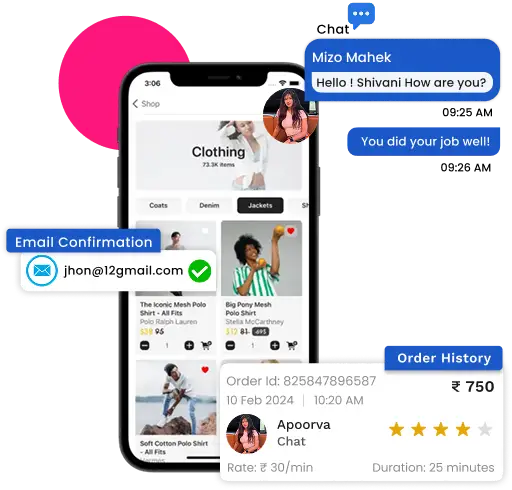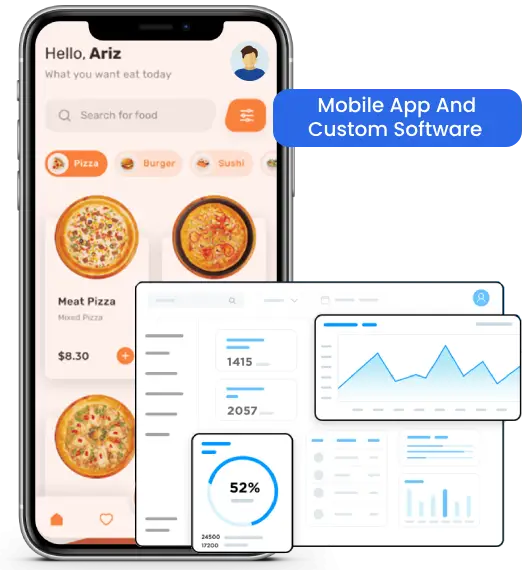In today’s digital age, eCommerce has become an essential part of retail business operations. As businesses strive to expand their reach and increase sales, the demand for comprehensive multi-vendor eCommerce platforms is on the rise. Developing such a platform requires careful planning, execution, and investment. In this blog post, we will explore the complete estimation cost to develop a b2b eCommerce platform with all the necessary features.
What is B2B eCommerce Platform
A B2B eCommerce platform is a digital shop where buyers for a particular service or product can look for it and purchase it directly from the seller. Usually, the people involved in the B2B sales are distributors, wholesalers and manufacturers.
Key Specifications of a B2B eCommerce Platform
However, a business to business (B2B) eCommerce platform and business to consumer (B2C) eCommerce platform look similar and they are even similar yet have differences in many aspects. Now coming to the specifications of a B2B eCommerce platform in brief:
- Negotiable prices
- Trust based buying between buyers and sellers
- Credit base payment is often allowed
- Meaningful buying thus less returns/replacement
- Bulk orders and repetition of orders
These are the key specifications that a B2B eCommerce platform must have in order to stay in the market for longer durations.
What are the Essential Features of a B2B eCommerce Platform?
A business-to-business eCommerce platform should be feature-rich and must allow smooth and easy navigation for the user throughout the website. Here are some B2B eCommerce platform features list that must stand out from the rest.
- Bulk Ordering: Usually, B2B customers want to place a large order comprising the quantity of items they need. To handle such hefty demands, you can incorporate a contact form for the customer where he can share the exact needs regarding the order.
- Multiple Payment Options: Often a B2B customer does not have the payment option listed on the website thus they go with the other vendor. Choose the payment gateway that facilitates payment acceptance from the most common and widely preferred payment modes.
- Clean and User-Friendly Interface: Having a platform with a clean and user-friendly interface helps in retaining customers. Furthermore, it also helps the user navigate from one page to another and finally land on the desired product page from where he can place an order.
- Prompt Sales Support: Often a B2B customer wants to customize his order but how can he do so? Well in such cases, your B2B eCommerce platform must have an option for the personalization of the order. Since the order is big, you must modify the stuff to satisfy the customer’s needs, promptly.
- Hefty Discounts on Wholesale Orders: Finally, a B2B eCommerce store should offer great discounts on large orders. It will not only drive more sales and revenue but also help the business in sustaining a customer for a long duration.
A multi-vendor eCommerce platform should encompass the following key components
- Admin/Staff Portal: This web-based portal offers a user-friendly interface for internal staff to manage and oversee the operations of the eCommerce platform. It includes access rights management for staff members, various reports, key performance indicators (KPIs), and dashboards to provide quick access to essential information.
- Merchant Portal: The merchant portal is a dedicated web-based platform that empowers merchants to effectively manage their profiles, products, orders, and payments. It provides merchants with complete control over their online business. The portal includes features such as registration, product management, order tracking, and access to reports, KPIs, and dashboards for insights into their business performance.
- Customer Portal: The customer portal enhances the shopping experience by providing a user-friendly website and a feature-rich mobile app. Customers can browse products, place orders, track deliveries, and conveniently make payments. The portal ensures a seamless shopping experience and encourages customer loyalty.
B2B eCommerce Platform: Time and Cost Estimation:
To estimate the time and cost required for developing a multi-vendor eCommerce platform, we consider various factors and the scope of work involved. Here’s a breakdown of the estimated hours for each phase:
| S.no. | Phases | B2B Multi Vendor Marketplace | B2B eCommerce Platform |
|---|---|---|---|
| 1 | Planning (Architecture, Database, Layout): | 40 hours | 4 hours |
| 2 | Documentation: | 24 hours | 3 hours |
| 3 | UI/UX: | 56 hours | 6 hours |
| 4 | Development & Testing (Functionality & Load Testing): | 1,344 hours | 140 hours |
| 5 | Security Features & Penetration Testing: | 40 hours | 4 hours |
| 6 | Test Planning: | 24 hours | 2 hours |
| 7 | Deployment: | 8 hours | 1 hours |
B2B eCommerce Marketplace Development Time: | 1,536 Hours | 160 Hours | |
It’s important to note that the provided cost estimation is for the Minimum Viable Product (MVP) covering all necessary functionalities. The actual cost may vary based on specific requirements, complexities, and additional features desired. Typically, the cost of developing a multi-vendor eCommerce marketplace can range from $20,000 to $70,000.
The average time taken to build a simple B2B eCommerce platform is approximately 160 hours (about 1 month). Now coming to the answer to the frequently asked question, how much does a simple B2B eCommerce platform cost? The cost of developing a feature rich B2B eCommerce platform is between $1000 to $10,000. However, this cost also depends on features, customization and additional needs of the client.
Expected Monthly or Yearly Running Costs:
In addition to the development cost, there are ongoing expenses to consider:
| 1 | Hosting Server: | $20 to $100 per month |
| 2 | Android Play Store: | $25 per year |
| 3 | iOS App Store: | $100 per year |
| 4 | Domain: | $10 per year |
These are the estimated monthly or yearly running costs for maintaining the platform and ensuring its availability to users.
In conclusion, developing a multi vendor eCommerce marketplace involves careful planning, execution, and investment. The estimated cost for a custom software development depends on various factors, including the scope of work, functionalities, and complexities. By understanding the requirements and considering the estimated costs, businesses can make informed decisions and invest in a robust and scalable multi-vendor eCommerce platform.
Also Read
Which is the Best Platform to Build a Ecommerce Website?
How to Choose the Best Mobile App Development Company?







